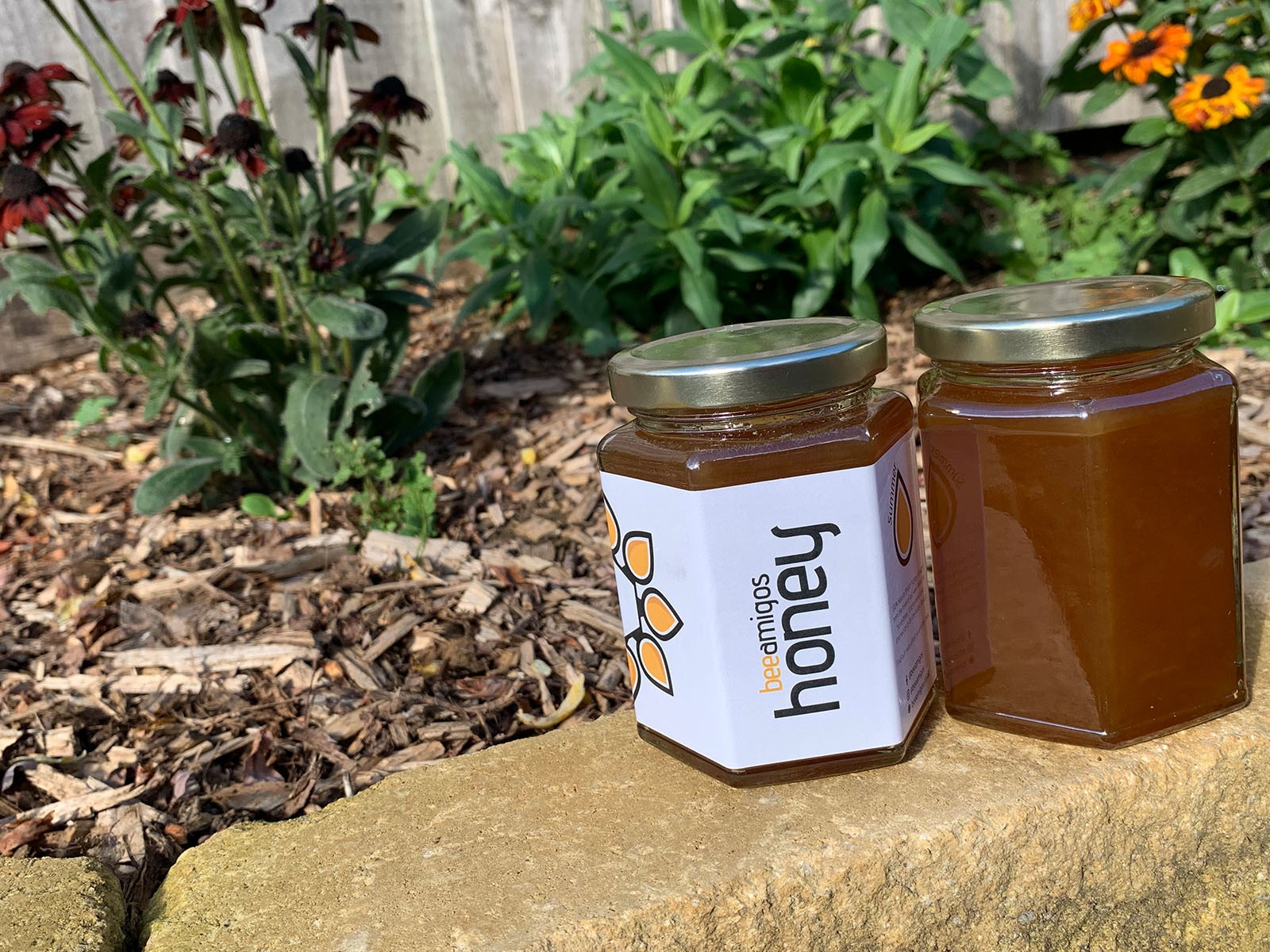
At Bee Amigos we’re often asked the question, is honey good for you? It’s a frequently debated topic which is often resurfaced due to the evolving research and the publics continued interest. As consumers we personally scrutinise our food choices more than ever before, not just what we eat, but where we get that food from. There’s often a direct and inherent relation between where and how the food is produced and how healthy and nutritious that food is. Is raw and local honey better for you than the alternatives on the supermarket shelves?
Perhaps the question we’re asked more than any other is whether honey is good for hayfever. The general belief is that honey purchased from your local beekeeper eases your hayfever allergy making the summer months a little bit more bearable. The theory makes sense, raw local honey contains pollens from your area so once consumed you desensitise your body of the negative affects associated with hayfever. Consider it an approach on immunotherapy.
Many, many people swear by it. But despite all the positivity around it, the scientific research can’t back it, and this has been shown to be the case over numerous trials, the reasons for peoples perceived improvement continues to be debated. From our perspective it does appear that everyone has a slightly different experience with local honey so if you’re a long time sufferer of hayfever then why not give it a try?
Hitting headlines towards the end of 2020 was confirmation of a fact that many have known for decades, honey is excellent at helping with sore throats and is a great cough suppressant. The studies took it a little further and were able to show that raw honey was in fact better than over the counter cough medicines. Through the winter months we’re seeing more and more interest for this reason. So yes, honey is great for sore throats and coughs and the science is backing it fully.
Raw honey that has not been excessively processed or heated maintains a much higher antioxidant concentration compared to honey found in the supermarket. Honey straight from the hive maintains high levels of phenolic acids and flavonoids and darker honey varieties typically contain much higher levels of these antioxidants.
Manuka honey is a great tasting product with a higher antioxidant content than any other honey and is why it fetches such a high price, but the product is put through vigorous testing and then clearly stamped with its UMF or Unique Manuka Factor. The UMF defines its antibacterial content, the higher the UMF the higher the content and often higher the price. At the highest levels it’s often considered good enough to topically treat external wounds to aid healing! Very few other types of honey can attest to be used in this way.
Minor burns should always be placed under cool running water but can always be followed up with light layering of honey and gauze. The honey itself creates the optimum environment along with anti-bacterial properties to aid the healing process.
There is truth and scientific proof that the health benefits are real, but only to a certain degree. There is an additional nutritional benefit in honey but when balanced against the sugar content you’re consuming it’s somewhat negligible. You would have to consume vast amounts of honey to derive a significant antioxidant benefit because in doing so you’ve just consumed significant amounts of sugar. You’ve possibly lowered your triglycerides but your blood sugar is spiking through the roof.
That said, honey as part of a wider beneficial diet is an inevitable plus, it’s all about the law of marginal gains. As a natural product, raw British honey is as natural as it gets and replacing cane sugar with honey is easy to do, it tastes better and is a great component in both sweet and savoury cooking and is readily available from your local beekeeper. In this respect it’s on par with replacing sea salt with Himalayan salt in an attempt to replace something we use everyday with something slightly better for you. You wouldn’t eat a ton of Himalayan salt to acquire those trace minerals, it just slightly improves your nutritional intake over the course of time.
Information on the health benefits of honey should be taken with a pinch of salt 😉 Know what you’re buying and understand that honey isn’t a health product in its own right, don’t expect sudden improvements in your health. As part of your wider diet though the benefits are certainly there, along with topically treating minor burns and easing your cough. On top of that you’re eating a natural product and supporting the British beekeeping industry.
Get your hands on some of our local honey through our online shop, shipping UK wide and free delivery for those close by.